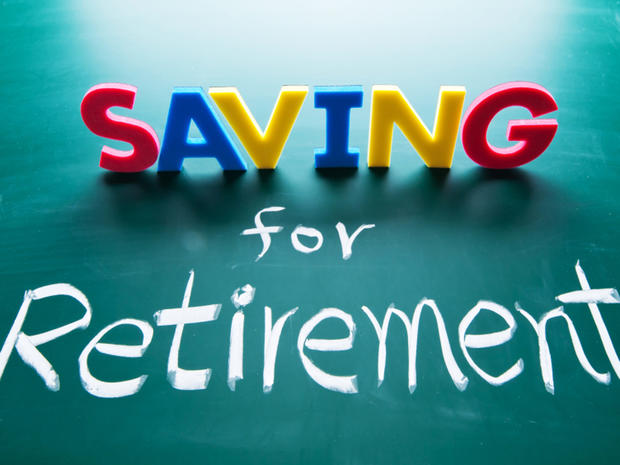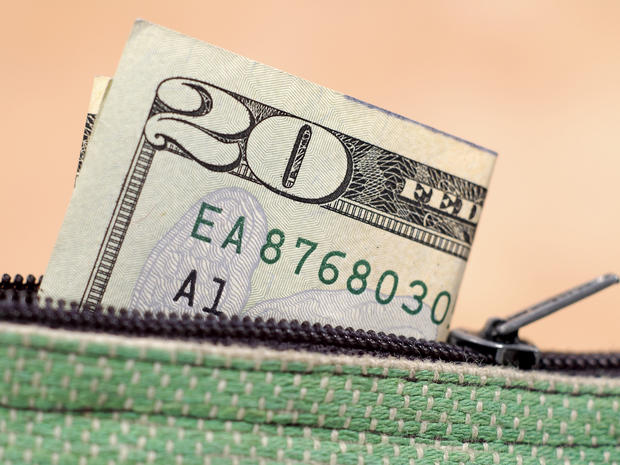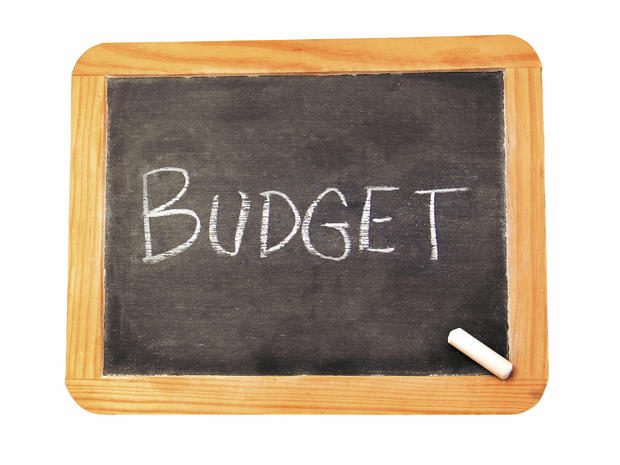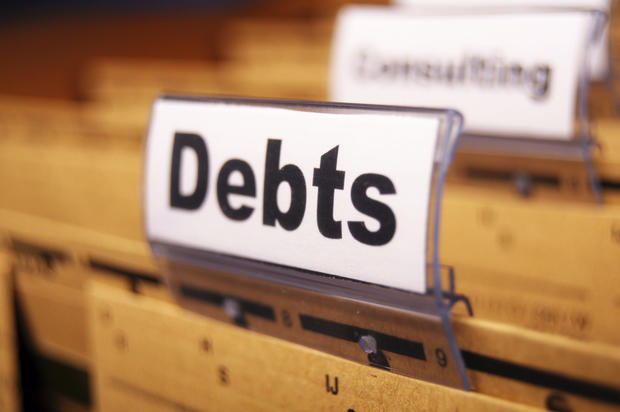10 money moves you need to make in your 20s
By Maryalene LaPonsie/MoneyTalksNews
Those of you still fresh out of high school have an amazing opportunity: You may be starting your first job. You may have few bills. You may be so used to eating ramen noodles that it will be relatively painless to live lean and save a pile of cash if you'd like.
Even if you've made money mistakes, those may be relatively easy to reverse. After all, at most, you have maybe a couple of years of mistakes behind you. Compare that to a 40-year-old who could have 20 years of financial missteps to correct.
To make the most of your fresh start in life, here are 10 money moves you should make.
Start a retirement account, pronto!
I know, you're just starting your first job; retirement isn't even a blip on your radar screen. But it'll never be easier to start saving than right now, and by putting money in an account in your 20s, you maximize the near-magical phenomenon of compound interest. It's something that has the potential to turn $100 deposits now into $1 million withdrawals later.
Your employer may offer you a 401(k), which is the easiest way to save. The money comes right out of your paycheck, so you'll never miss it. Plus, many employers will match your contribution up to a certain percentage. That's free money you don't want to pass up.
If a 401(k) isn't available through your job, start an IRA instead. (Personally, I recommend a Roth IRA for reasons you can read about here.)
Invest your money aggressively
Once you have your account open, you'll probably have the opportunity to select where the money goes. Many 401(k)s default contributions into stable value funds, but you definitely don't want your money there while you're in your 20s.
Stable value funds are just what the name implies. The fund wants to keep your money safe (i.e. stable) so it makes use of very conservative investments. While you generally don't have to worry about losing money, you won't make much either. In my experience, stable funds average 1-2 percent growth per year.
By comparison, some emerging-market and high-risk funds earn a 15, 20 or even 30 percent returns each year. However, to get those huge returns, the money is put in investments that may be just as likely to go bust as to boom. That risk scares away older investors, and rightly so, but most 20-somethings can handle the risk. If your investments take a nose dive, you likely have another 40 years in the workforce to make up the loss.
Still, I don't recommend pouring all your money in high-risk funds. You need to have a balance of investments. (To find out how to achieve that, check out this video for Stacy Johnson's advice on how to invest your 401(k) money.)
Write down short-term, midterm and long-term goals
For this step, I'm not suggesting you need to map out your whole life. I'm not even saying you have to stick with your plans. You're free to change them at any time.
However, having an idea of where you want to go in life will make it easier for you to make smart decisions with your money. Then, you won't end up at 40, eyeing your friend's summer home and feeling sorry for yourself that you can't buy one, too.
With that in mind, write down how you envision yourself living in one year, five years, 10 years and 20 years. Your goals can be anything you want, but here are some topics to contemplate:
- Marriage
- Children
- Travel
- Career trajectory
- Homeownership
- Major purchases such as boats, cars, vacation property, etc.
Plan to pay cash for everything
Personally, I think being able to pay cash for everything is life-changing. Those of you who have been up to your eyeballs in debt and had the embarrassing experience of your card being declined know what I'm talking about.
Tell yourself you'll be the type of person who always pays cash. That doesn't mean you won't ever take out a loan, and it doesn't mean you won't ever get a rewards credit card that you pay off each month. It does mean you might think a little longer and harder about going into debt and only do so if there are no other options.
Create a budget that supports your goals
I won't spend too much time on this money move because we already have an excellent article on Money Talks News about how to create a budget you can live with.
The key is to ensure your budget supports your goals. If you hope to be married or buy a house in five years, you probably want to have extra savings built into your budget for those things.
Save an emergency fund
Your budget also needs to include a line-item for emergency savings. This money needs to be separate from your retirement fund, so don't think your 401(k) or IRA counts. It's your "crap, I lost my job" money and your insurance against unexpected expenses.
Depending on whom you talk to, you should have enough money in your emergency fund to cover three to six months' worth of expenses. If you work on commission or have a job with a questionable future, shoot for six months' worth of emergency savings. If your job is stable, three months' worth will probably do.
Remember, this is money to cover your expenses, not necessarily to replace your income. You may make $50,000 a year, but you don't need a $25,000 emergency fund if you have zero debt, take the bus and have a $750 apartment.
Pay off your debt
In a perfect world, you'd start your adult life with zero debt, but we know better. There are student loans to pay, and you may have been suckered into opening a credit card or financing a car somewhere along the way.
Don't use the excuse that past mistakes give you license to make future mistakes. They also don't mean you have to resign yourself to living a life burdened by debt.
Start today to pay off what you owe. Use your next raise; use your tax return; use the cash your grandparents tuck into your birthday card.
Then cut up the credit cards and promise yourself you won't use one again until you've stuck to your budget for at least six months or, even better, a year. Then you can pull out the card so long as you promise to pay off the balance each month.
Skip insurance you don’t need
You can find more money to pay off your debt if you avoid buying insurance you don't need.
For example, buying life insurance sounds like a responsible thing to do, right? However, if you aren't married, don't have children and have money in an emergency fund, there is probably little reason for you to have life insurance in your 20s. It might be slightly cheaper to buy now, but rates will still be affordable when you're in your 30s.
Car insurance and health insurance are other places you may be likely to overspend. A 10-year-old car may not need comprehensive coverage. Likewise, many 20-somethings don't need comprehensive health coverage. Those younger than 30 are allowed to buy catastrophic health insurance, which has limited coverage but low, low rates. It may be a good option if you're healthy and need to buy your own medical insurance.
Don’t spend your money on stuff you don’t need or that won’t last
It's no secret many American homes are overflowing with stuff. There are entire books and websites devoted to decluttering.
As a 20-something, you are in a perfect position to avoid the clutter trap completely. You simply need to be mindful of what you buy and why. As a bonus, limiting your purchases will save money that can then be put toward buying the stuff you really want.
For instance, let's say you get an apartment so of course you need furniture. But being 20-odd years old, you don't have a ton of money so you buy a cheap, but new, living room set. Five years later everything is in tatters and needs to be replaced.
A better strategy may be to make do with some second-hand items and save up for quality furniture. Then, buy pieces individually as you decide you need them. Why spring for a whole set when you're not sure if you'll ever have enough people in the house to justify a couch, loveseat and recliner?
Forget everything society tells you a grown-up should do
Along the same lines, you should disregard everything you have ever thought about what it means to be a successful grown-up. Think about it. When do you think you'll have made it?
- When you get married?
- When you buy a house?
- When you buy a new car?
- When you go on a faraway vacation once a year?
- When you are able to go to the store and buy what you want when you want?
Forget all that. Society likes to tell us how to live, but the best money move you can ever make is to spend your money smartly on what matters to you personally.
The American Dream may be the house with the white picket fence, but you don't have to buy a house to prove you've made it to adulthood. And if you do buy a house, you don't have to renovate it before moving in. Plenty of grown-ups live in perfectly acceptable houses that sport dated wallpaper and shag carpeting. Let your personal goals be your guide when it comes to spending your hard-earned cash.










